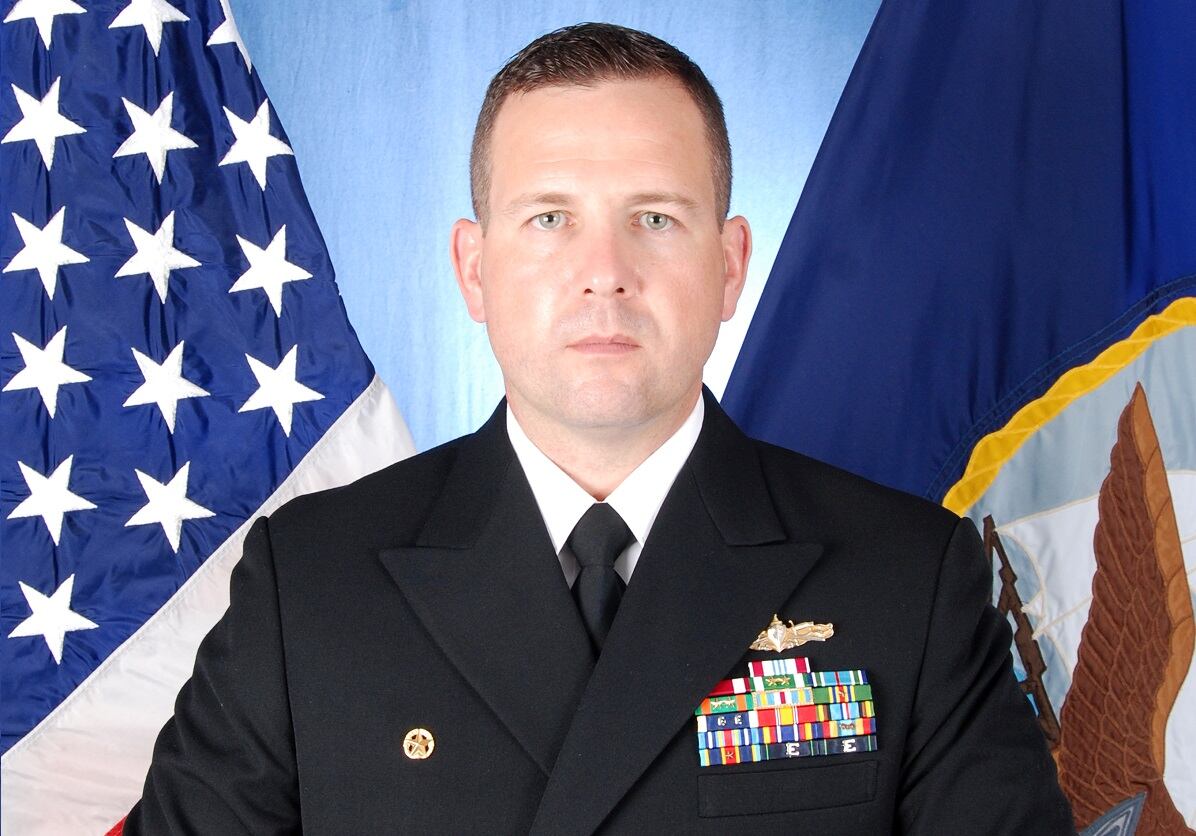The court-martial of the former skipper of the guided-missile destroyer Fitzgerald was tossed into disarray Tuesday when a military judge ruled that the admiral who brought charges against Cmdr. Bryce Benson failed to remain neutral in his case.
For now, the decision scraps charges brought against Benson last year because the four-star disqualified himself as a convening authority with his “improper referral,” judge Capt Jonathan T. Stephens wrote in his opinion.
“The Navy is reviewing the court’s ruling and assessing legal options,” service spokesman Lt. Cmdr. Daniel Day said in an email to Navy Times. “All future action will be in the best interest of justice.”
The flag at fault is Adm. James F. Caldwell, the head of the Navy’s Nuclear Propulsion Program and a staffer under Chief of Naval Operations Adm. John Richardson, a fellow submariner.
CNO named him as the “Consolidated Disposition Authority,” or CDA, to mete out discipline for both the June 17, 2017 collision of the Fitz and commercial container vessel ACX Crystal in a bustling maritime corridor off the coast of Japan and a similar disaster near Singapore two months later involving the destroyer John S. McCain and a civilian tanker.
Seven American sailors drowned in the Fitzgerald accident and 10 were killed on the McCain.
Benson’s defense attorney, Lt. Cmdr. Justin Henderson, applauded Tuesday’s ruling.
“Our system’s rules…are designed to guarantee the fundamental right to a fair trial,” Henderson said. “We are glad the military judge saw this issue our way, and we await a thoughtful and just response from senior Navy leadership.”
Henderson continues to call on the Navy to boot the two charges against Benson — dereliction in the performance of duties through negligence resulting in death and improper hazarding of a vessel — because of public comments uttered by Navy leaders that he argues have scuttled any chance for the Fitz’s ex-CO to get a fair trial.
RELATED
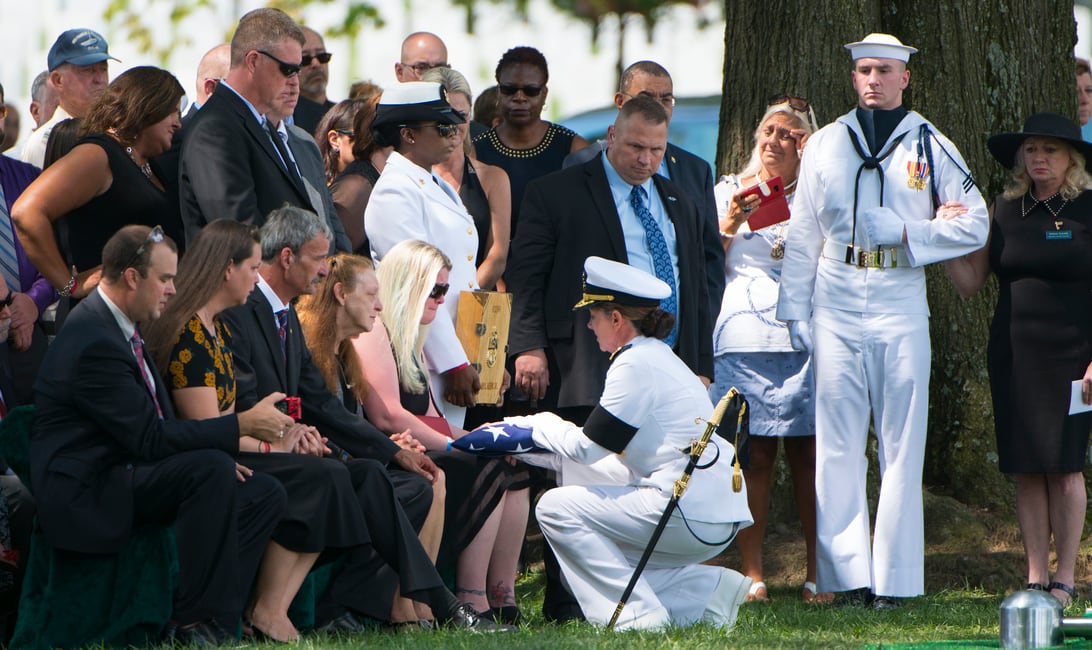
In his ruling, judge Stephens indicated that Caldwells' problems began during administrative disciplinary hearings on Jan. 25, 2018 targeting Benson’s executive officer, Cmdr. Sean Babbitt, and Command Master Chief Brice Baldwin, the senior enlisted sailor on board the Fitz during the collision.
During those non-judicial punishment proceedings and a hearing involving an unnamed third Fitz officer, Caldwell asked questions “designed to gather evidence” against Benson, Stephens determined.
That shifted Caldwell from a neutral arbiter of facts into the role of an accuser.
“ADM Caldwell asked specific questions about (Benson), at least two of which were at the behest of trial counsel,” Stephens ruled.
It was a problem Caldwell could’ve sidestepped had he simply completed the NJP hearings “without asking the highlighted questions about (Benson)," Stephens wrote.
Caldwell also could’ve reviewed prior official probes into the collisions, “removing the need to ask questions again at the hearings,” Stephens added.
Caldwell ran afoul of the law a second time because of a hearing he oversaw last March against Capt. Jeffrey Bennett, the former commodore of Destroyer Squadron 15, according to the ruling.
The admiral stated that Benson and the McCain’s ex-commanding officer, Cmdr. Alfredo J. Sanchez, “were directly responsible for, and could have prevented, the collisions," Stephens found.
Had Caldwell never mentioned Benson’s alleged culpability “there would be no issue," but his "pronouncement of the accused’s guilt further demonstrates that he had assumed a prosecutorial role in this case,” Stephens wrote.
Caldwell did not respond to an email from Navy Times seeking comment.
RELATED
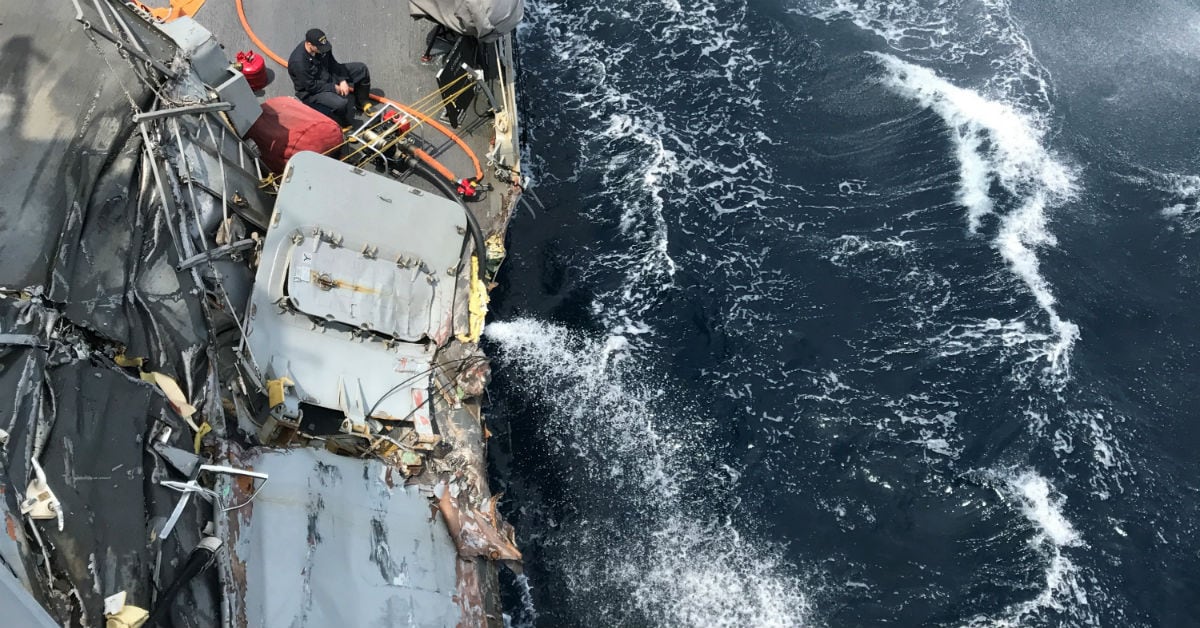
Stephens stopped short of dismissing all charges against Benson and it remains unclear what his latest ruling means both for the Navy’s prosecution of Benson but also a similar case against a fellow Fitz officer, Lt. Natalie Combs.
Retired Navy Capt. Lawrence Brennan, an instructor at Fordham University School of Law, told Navy Times on Thursday that the military must name a new convening authority, but that’s complicated by a motion filed by Henderson that alleges Adm. Richardson and his deputy, Vice Chief of Naval Operations Adm. Bill Moran, committed unlawful command influence against Benson.
Dubbed the “mortal enemy of military justice,” UCI occurs when superiors utter words or take actions that taint the outcome of courts-martial, jeopardize the appellate process or undermine public confidence in the armed forces by appearing to tip the scales of justice.
To Brennan, that likely means the next highest leader, Secretary of the Navy Richard Spencer, will be asked to pick a new convening authority but “we need to see how this will impact the rehearing in the unlawful command influence motion."
Any replacement for Caldwell must be a flag officer “who has not run his or her mouth about the case and has no track record of opining about the guilt or innocence or any other appearances of impartiality that were the concern of the judge,” said Patrick McLain, a retired Marine Corps judge now in private practice.
While noting the appearance of UCI in Benson’s case, Stephens so far has ruled ruling only that Benson’s defense should receive expanded options when a panel is selected to act as his jury.
RELATED
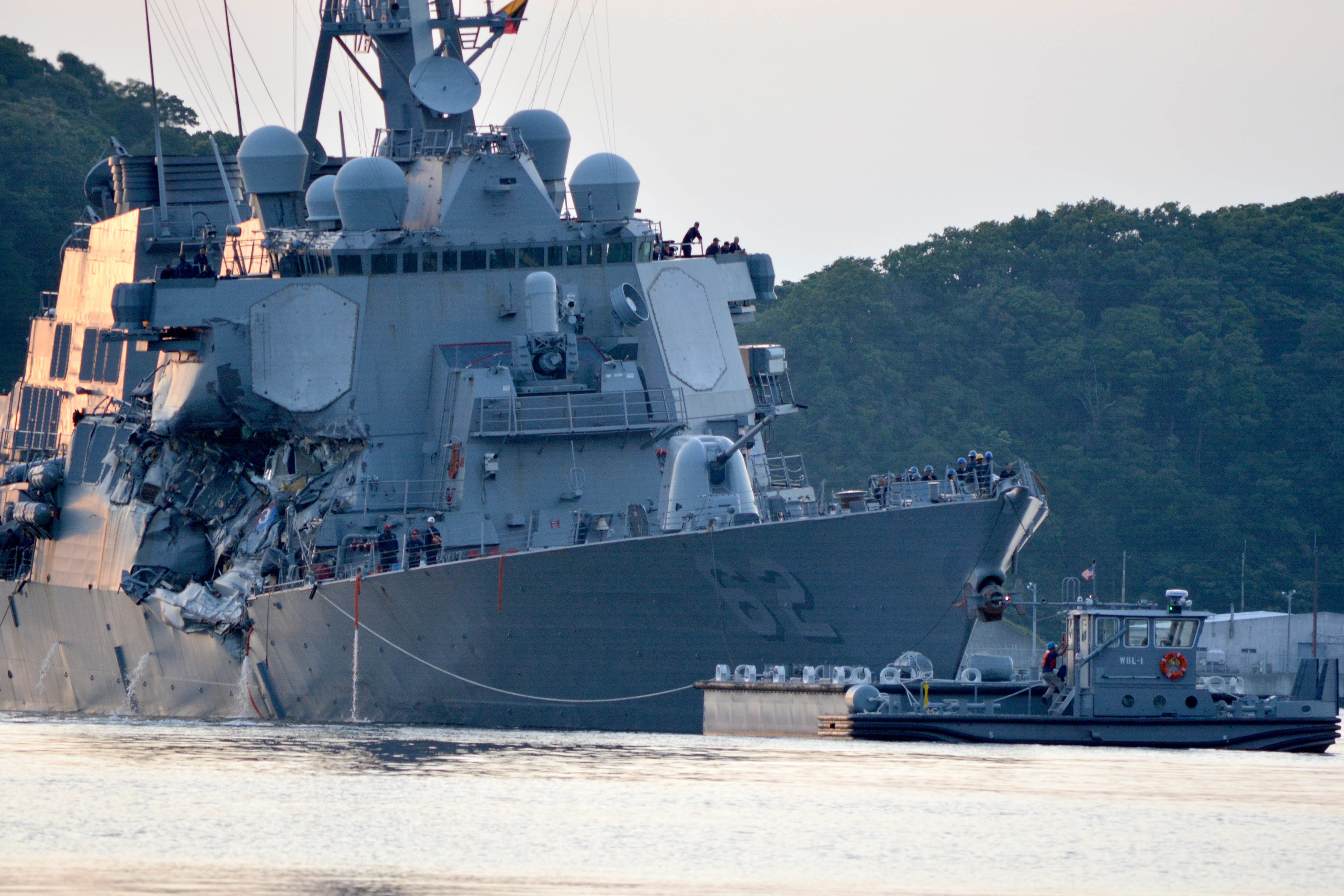
The civilian defense attorney for Lt. Combs, David Sheldon, has also questioned Caldwell’s impartiality and raised similar UCI issues in his court filings, but the judge in her case hasn’t issued rulings on the motions.
Sheldon told Navy Times that if Caldwell unlawfully assumed a prosecutorial role in the Benson case then the "same is true in LT Combs’ case.”
A preliminary Article 32 officer sifting through evidence against Combs recommended that she forgo a court-martial trial and instead appear before a board of inquiry to determine if she should remain on active duty, but Caldwell overruled that.
“Unfortunately, this is yet another black eye for the Navy,” Sheldon said. “High profile cases, like the Fitzgerald collision cases …serve as stark reminders that unlawful command actions undermine the integrity of the military justice system.”
RELATED
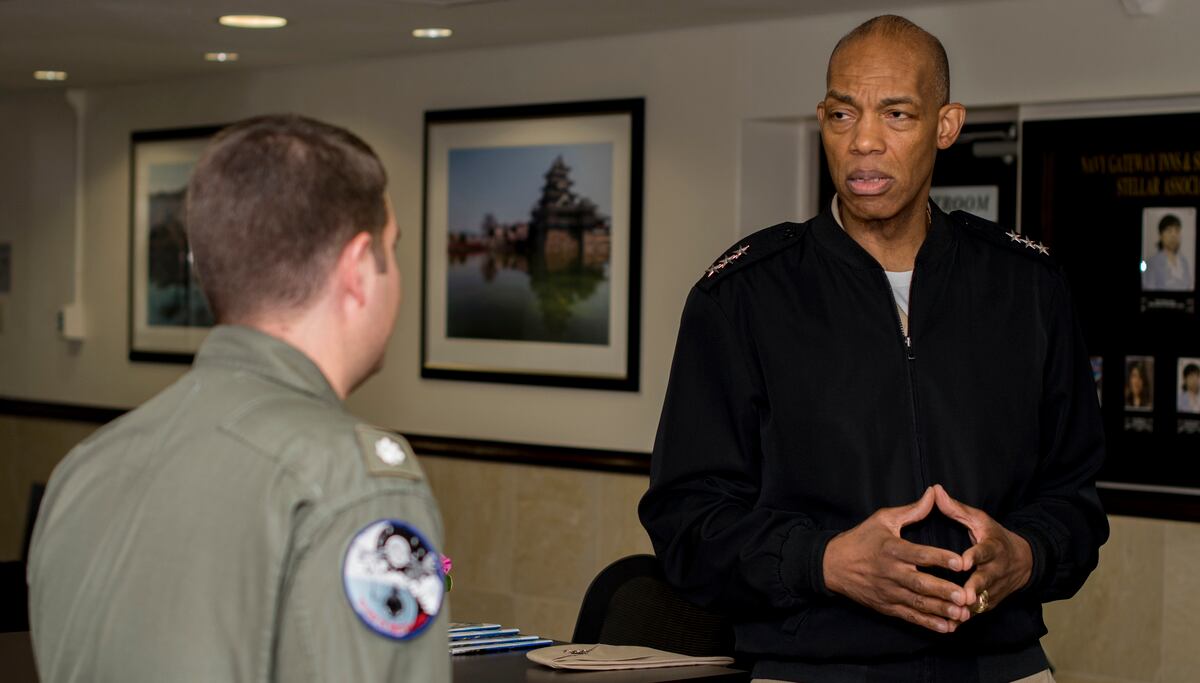
Examples of cases tainted by unlawful command influence and a lack of impartiality by convening flag officers are not rare, according to McLain, the retired Marine judge.
He pointed to retired Vice Adm. James W. Crawford III, the former top lawyer of the Navy, and a Sept. 15 decision by the U.S. Court of Appeals for the Armed Forces that found he improperly meddled in the clemency proceedings against Senior Chief Special Warfare Operator Keith E. Barry.
The justices overturned Barry’s rape conviction and the government was forced to vacate all charges against him.
Sheldon represented Barry in his precedent-setting appeal.
The Navy also could appeal Stephens' ruling against Caldwell but that’s probably not going to happen, according to McLain.
“They may send it to the shoals. It may be too hard, but in my experience, they’re just going to go back to the drawing board," he said.
Geoff is the managing editor of Military Times, but he still loves writing stories. He covered Iraq and Afghanistan extensively and was a reporter at the Chicago Tribune. He welcomes any and all kinds of tips at geoffz@militarytimes.com.
